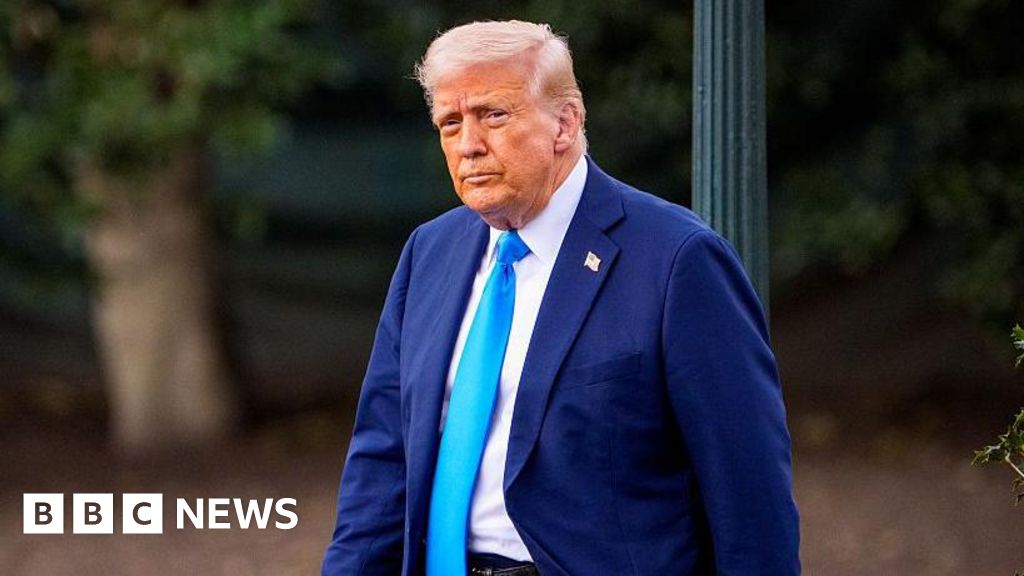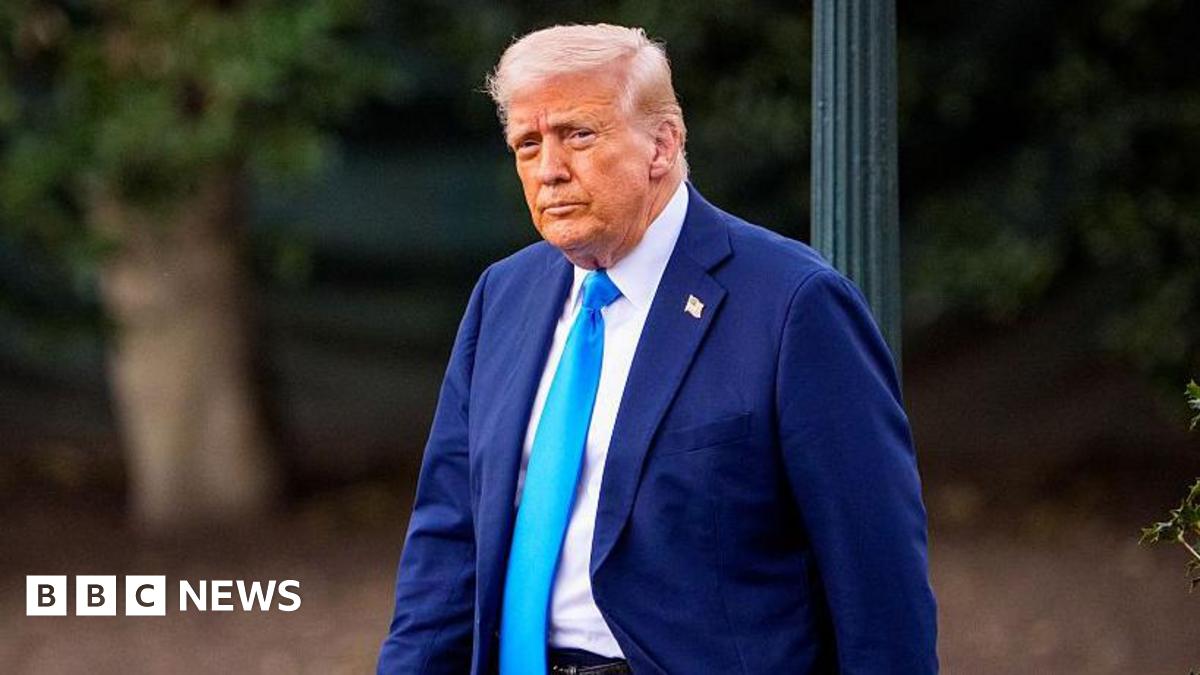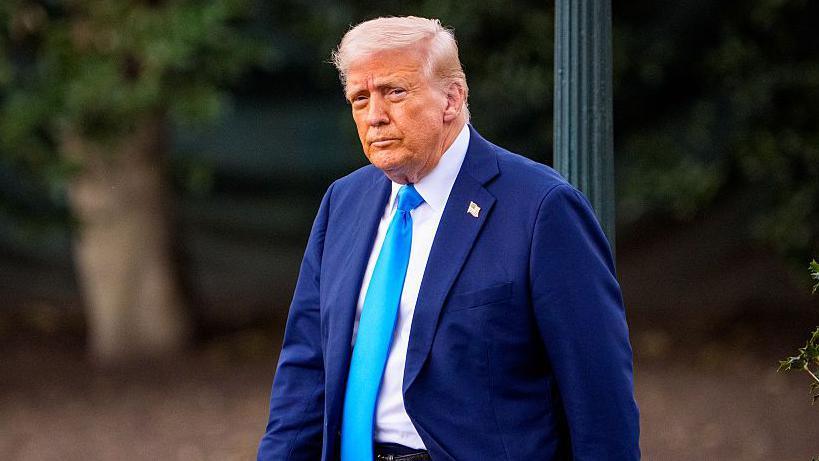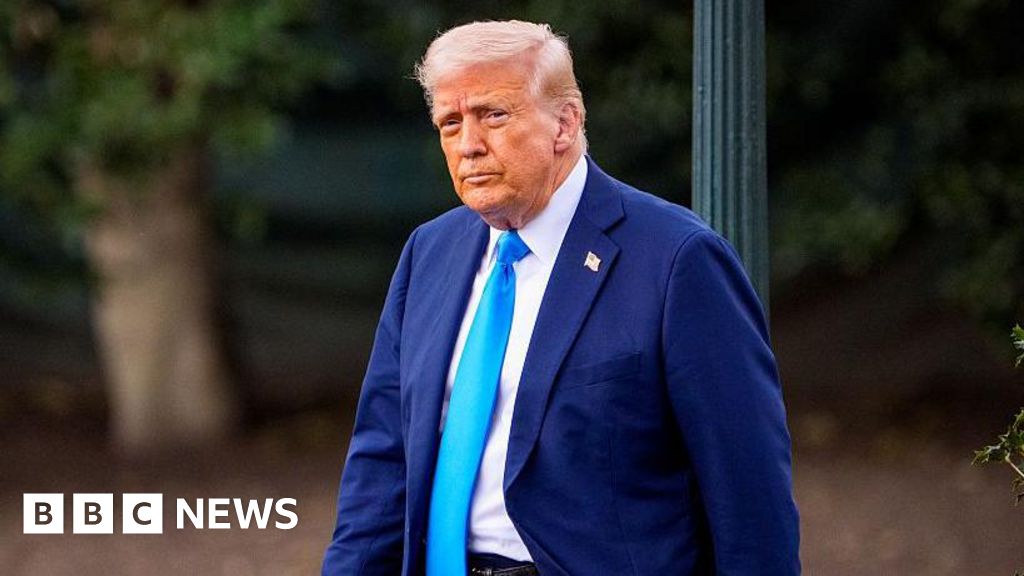“In a shocking escalation of his trade war tactics, US President Donald Trump is poised to push the nuclear option on tariffs, triggering a new wave of crippling levies on imports from key allies and adversaries alike. The stakes are higher than ever as the Great Trump Tariff War intensifies, pitting America’s economic interests against rival nations and testing the limits of global trade relations. As tensions soar and the specter of protectionism looms large, one thing is clear: the fate of global trade hangs precariously in the balance.”
Tariffs: A Global Economic Shift

The Trump administration’s tariff strategy is poised to reshape the global economy and the way business is conducted worldwide. The ‘Liberation Day’ tariff proposal, which aims to impose a 20% universal tariff on all imports into the USA, has sparked widespread concern among trade partners and economists alike.

Trump’s Tariff Strategy
The reciprocal tariff concept, which aims to impose tariffs on countries that do not provide reciprocal trade arrangements, has significant implications for trade partners. The role of Value Added Taxes (VAT) in Trump’s tariff strategy is also a key aspect, as it could lead to the imposition of tariffs at 10 or 20% if deemed necessary.

The Reciprocal Tariff Concept: Implications for Trade Partners
The reciprocal tariff concept is based on the idea that the US will impose tariffs on countries that do not provide reciprocal trade arrangements. This could lead to a system where countries are broadly bracketed into different levels of a basically universal tariff. As one G7 negotiator noted, “it all comes down to President Trump.”

The Role of Value Added Taxes in Trump’s Tariff Strategy
The role of VAT in Trump’s tariff strategy is significant, as it could lead to the imposition of tariffs at 10 or 20% if deemed necessary. This could have far-reaching implications for trade partners, particularly in the European Union, which could see tariffs imposed on its exports to the US.

Global Economic Impact
The global economic impact of Trump’s tariff strategy is expected to be significant. The Aston University Business School study estimates that the total cost around the world could be $1.4 trillion (£1.1tn), as trade is diverted, and prices rise.
The Aston University Business School Study: Estimated Costs of Tariffs
The Aston University Business School study estimates that the total cost around the world could be $1.4 trillion (£1.1tn), as trade is diverted, and prices rise. This could lead to significant economic contraction, particularly in countries that are heavily reliant on exports to the US.
The Potential for Global Retaliation and Economic Consequences
The potential for global retaliation and economic consequences is significant. A system such as this, with equivalent global retaliation, would see the UK economy shrinking by 1%, enough to wipe out growth and lead to pressure for tax rises or spending cuts.
Industry Analysis and Reactions
The industry analysis and reactions to Trump’s tariff strategy have been mixed. Some experts believe that the European Union will target US tech companies, while others expect the UK to offer a significant tax cut to US big tech.
The European Union’s Response to US Tariffs: Targeting US Tech Companies
The European Union’s response to US tariffs is expected to target US tech companies. This could lead to a significant shift in the global tech landscape, as companies such as Google, Facebook, and Amazon face increased tariffs on their exports to the EU.
The UK’s Potential Tax Cut for US Big Tech: A Counter-Move
The UK’s potential tax cut for US big tech is seen as a counter-move to Trump’s tariff strategy. This could lead to a significant influx of US tech companies into the UK, as they seek to take advantage of the more favorable tax environment.
A New Era in Trade: The End of Globalization as We Know It
The Trump administration’s view on globalization is that it has failed in the eyes of the US. The idea that rich countries would move further up the value chain, while poor countries made the simpler things, has not panned out, especially in the case of China.
The US Administration’s View on Globalization
The US administration’s view on globalization is that it has failed in the eyes of the US. The idea that rich countries would move further up the value chain, while poor countries made the simpler things, has not panned out, especially in the case of China.
The Rise of China and its Impact on Global Trade
The rise of China and its impact on global trade has been significant. China has become a major player in global trade, and its exports to the US have increased significantly over the years. However, the Trump administration’s tariff strategy is seen as a move to counter China’s growing influence in global trade.
The US’s Move Away from Globalization
The US is moving away from globalization, as indicated by President Trump’s plan to impose tariffs on imports. This move is expected to have a significant impact on US business in Europe and other markets.
The Impact on US Business in Europe and Other Markets
The tariffs on imports are likely to increase costs for US businesses that rely on foreign goods, which could lead to higher prices for consumers and reduced competitiveness for US companies.
Additionally, the tariffs could lead to retaliatory measures from other countries, which could further disrupt global trade and supply chains.
The Potential for Cheaper Imports from China and Other Asian Countries
One potential benefit of the tariffs on imports is that they could lead to cheaper imports from China and other Asian countries, as these countries may be able to sell their goods at a lower cost due to the tariffs.
However, this could also lead to a surge in imports from these countries, which could further disrupt the US market and lead to job losses.
The Consequences of the US’s New Trade Strategy for Global Markets
The US’s new trade strategy is expected to have significant consequences for global markets, as it could lead to a shift in the global balance of power and alter the way that countries trade with each other.
The strategy could also lead to a reduction in global trade, as countries may be less likely to engage in trade with the US if they are subjected to tariffs.
The Role of China in the Tariff Debate
China is likely to play a significant role in the tariff debate, as it is one of the largest trading partners of the US and is likely to be affected by the tariffs.
China’s Potential to Benefit from the US’s New Trade Strategy
China may benefit from the US’s new trade strategy, as it could lead to a reduction in US imports and an increase in Chinese exports.
However, this could also lead to a surge in imports from China, which could further disrupt the US market and lead to job losses.
The Impact of the US’s Tariffs on China’s Economy and Global Influence
The US’s tariffs on China could have a significant impact on China’s economy and global influence.
China is likely to retaliate against the US tariffs, which could lead to a trade war between the two countries.
This could have significant consequences for both countries, including a reduction in global trade and a shift in the global balance of power.
The Automotive Industry in the Crossfire
The US Tariffs on Car Imports
The US has announced that it will impose tariffs on car imports, which could have a significant impact on the automotive industry.
The tariffs could lead to higher prices for consumers and reduced competitiveness for US car manufacturers.
The Announcement of 25% Tariffs on Cars and Car Parts
The US has announced that it will impose tariffs of 25% on cars and car parts, which could have a significant impact on the automotive industry.
The tariffs could lead to higher prices for consumers and reduced competitiveness for US car manufacturers.
The Impact on US Car Companies and the Global Supply Chain
The tariffs could have a significant impact on US car companies and the global supply chain.
US car companies may be forced to raise prices or reduce production in order to absorb the cost of the tariffs, which could lead to job losses and reduced competitiveness.
The Response from the European Union and Other Trade Partners
The European Union and other trade partners have responded to the US tariffs on cars and car parts with concern and criticism.
The EU has stated that the tariffs are “unjustified” and “will harm both the EU and the US car industry.”
The Global Consequences of the US Tariffs
The Potential for the Temporary Shutdown of US Car Production
The US tariffs on cars and car parts could lead to the temporary shutdown of US car production, as car manufacturers may be unable to absorb the cost of the tariffs.
This could lead to job losses and reduced competitiveness for US car manufacturers.
The Impact on Prices and the Global Automotive Industry
The US tariffs on cars and car parts could also lead to higher prices for consumers and reduced competitiveness for US car manufacturers.
This could have significant consequences for the global automotive industry, including a reduction in global trade and a shift in the global balance of power.
The Role of Jaguar Land Rover and Other UK-Based Car Companies
Jaguar Land Rover and other UK-based car companies could be affected by the US tariffs on cars and car parts.
The tariffs could lead to higher prices for consumers and reduced competitiveness for UK car manufacturers.
The Response from Trade Partners and Industry Leaders
The Views of the Canadian Prime Minister and European Commission President
The Canadian Prime Minister and European Commission President have both expressed concern and criticism over the US tariffs on cars and car parts.
The Canadian Prime Minister has stated that the tariffs are “unjustified” and “will harm both Canada and the US car industry.”
The Comments from Analysts and Industry Leaders on the US Tariffs
Analysts and industry leaders have expressed concern and criticism over the US tariffs on cars and car parts.
The tariffs could lead to higher prices for consumers and reduced competitiveness for US car manufacturers.
This could have significant consequences for the global automotive industry, including a reduction in global trade and a shift in the global balance of power.
Conclusion
As Donald Trump continues to push the boundaries of economic policy, the latest development on tariffs has raised alarms across the globe. The article from the BBC highlights the unprecedented measures the US President is taking, escalating trade tensions to a boiling point. Trump’s decision to press the nuclear option on tariffs, effectively doubling import taxes on Chinese goods, has left many experts and world leaders scrambling to respond. The move is seen as a brazen attempt to level the playing field, but critics argue it will only lead to a catastrophic trade war.
The implications of this decision are far-reaching and multifaceted. Not only will it hit American consumers with higher prices, but it also threatens to disrupt global supply chains and damage US relationships with key trading partners. The BBC article notes that the European Union and other countries are bracing for the fallout, with some analysts warning of a global economic downturn. As the situation unfolds, it is clear that the stakes are high, and the consequences of failure will be severe.
As the trade tensions escalate, one thing is certain: the future of global trade hangs in the balance. The question on everyone’s mind is: will Trump’s gamble pay off, or will it lead to a devastating economic catastrophe? The answer will depend on the responses of other nations, the resilience of the global economy, and the willingness of world leaders to find a peaceful resolution. One thing is clear, however: the world is watching, and the outcome will have far-reaching consequences for generations to come. The clock is ticking, and the fate of global trade hangs precariously in the balance.
